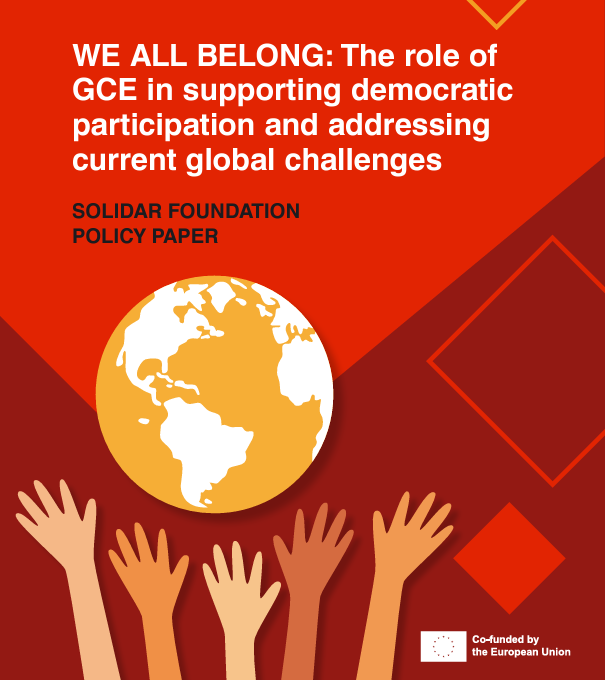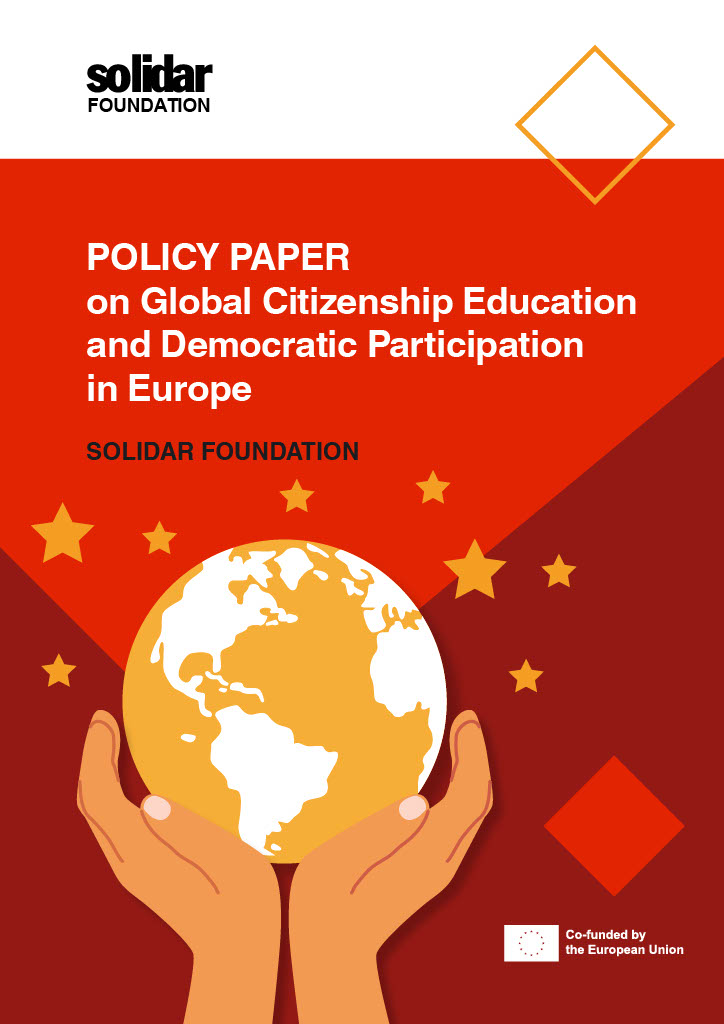Democracy in action – a conference on global citizenship education
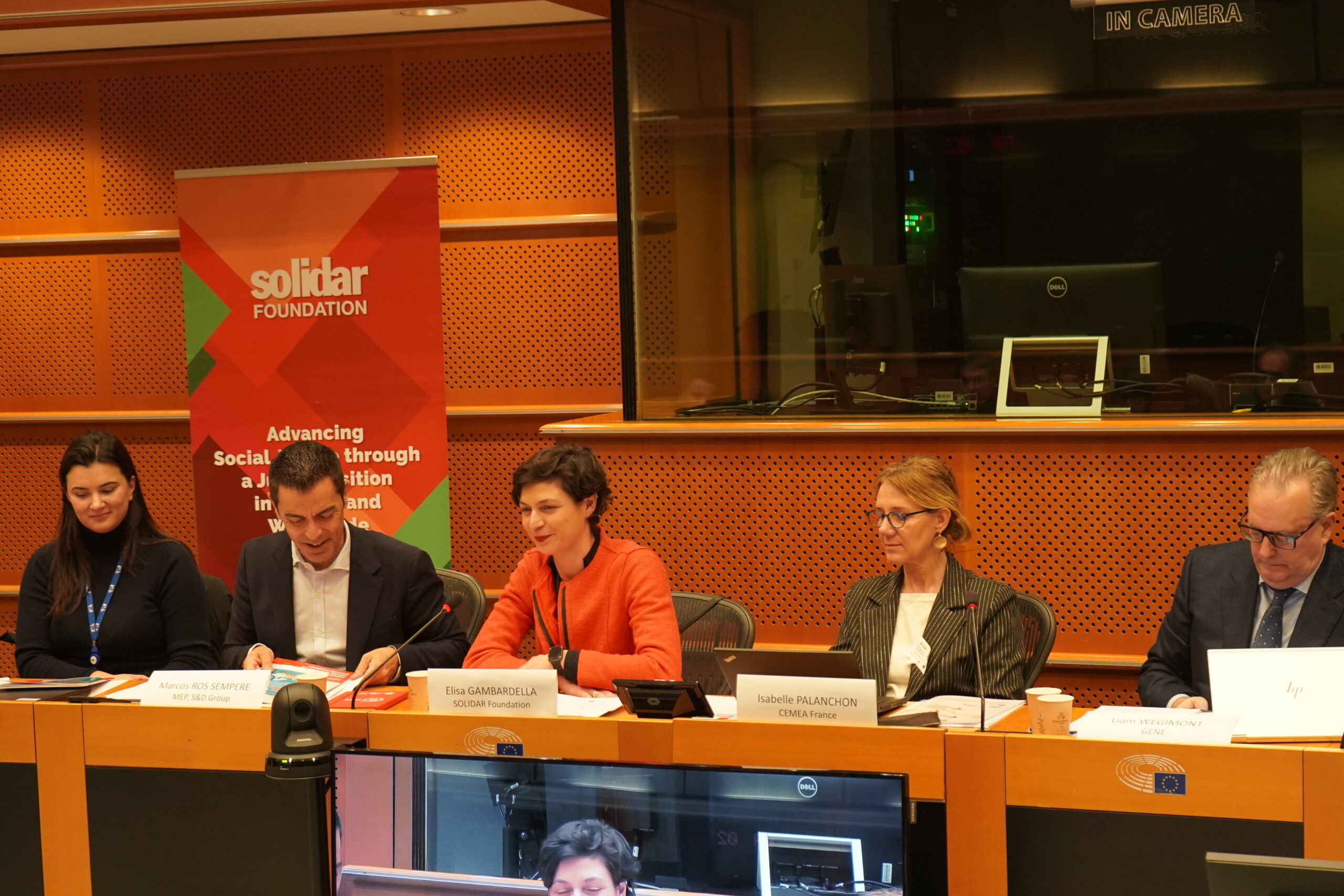
On Tuesday 3 December SOLIDAR Foundation organised Democracy in Action: A Conference on Global Citizenship Education at the European Parliament where the new Policy Paper Global Citizenship Education and Democratic Participation in Europe was presented.The event brought together several experts to discuss the role of Global Citizenship Edcuation (GCE) in acting as a catalyst for democratic participation.
Welcoming Remarks
In his welcoming remarks MEP Marcos Ros Sempere (S&D Group) stressed the importance of Global Citizenship Education (GCE) to both support democratic engagement and strengthen democracy in the European Union, especially given the current political climate. He mentioned the European Parliament’s Resolution of 6 April 2022 on the Implementation of Citizenship Education Actions, underlining the need for a common framework for the implementation of CE for Member States, the importance of teacher training, and of the sharing of good practices in this regard. He highlighted the need for integrating GCE in vocational education and training programmes, and praised SOLIDAR Foundation’s Policy Paper on GCE as a tool to help understand the existing challenges GCE faces and how to overcome them. He concluded his intervention by saying that he will continue his work on strengthening GCE in order to ensure everyone’s democratic participation regardless of one’s citizenship status.
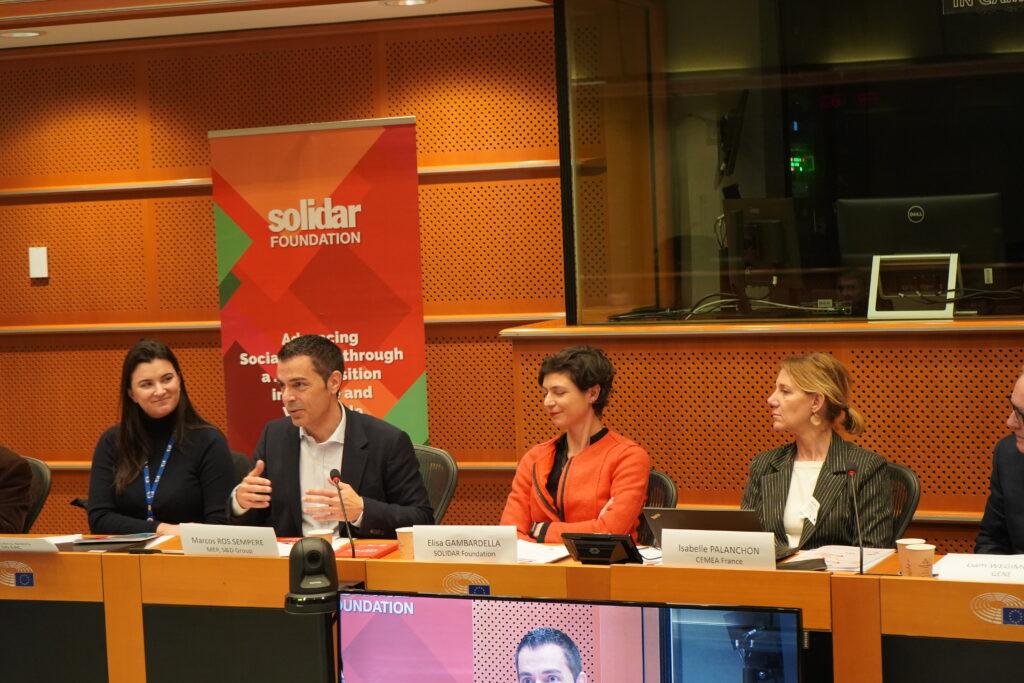
Presentation of the Policy Paper’s Main Findings & Policy Recommendations
Researcher Elizaveta Ebner introduced the main findings and policy recommendations from the policy paper. She explained that the need for this Policy Paper stems from, on the one hand, the challenges youth democratic participation is currently facing, as data shows that in 2024 turnout of young people in the EU elections decreased, while young people that voted, voted for parties often criticised for their anti-democratic narratives. This is backed by the global trend that young people are increasingly disappointed in democracy and that democracies are in decline. On the other hand, education is one of the EU priorities in promoting democratic participation among youth. The Policy Paper aimed to provide an overview of the currently available evidence on the impact of GCE on democratic participation, to map GCE policy developments in the EU, and offer policy recommendations on improving GCE policies and practices across all types of education in the EU to strengthen democratic participation. Elizaveta underscored that findings show that education can significantly affect civic engagement, such as voting, motivation to vote, civic attitudes and behaviour. Read more about the findings and policy recommendations here.
Roundtable Discussion
A Roundtable discussion on the topic of Global Citizenship Education (GCE) as a catalyst of democratic participation then took place chaired by Elisa Gambardella (SOLIDAR Foundation) with the participation of Alexandra Biris, (Policy Officer, DG EAC), Liam Wegimont (Executive Director, GENE) and Isabelle Palanchon (International Department, CEMEA France).
Take a look at the event’s Activity Report below to find out more about the engaging discussion!
- Alexandra Biris, (Policy Officer, DG EAC) highlighted the 2023 Council Conclusions emphasizing education’s role in fostering EU values and democratic participation. While acknowledging the need for a global approach to citizenship education, Alexandra noted that education remains a Member State competence. However, the European Commission facilitates discussions, provides funding, and shares best practices on (Global) Citizenship Education.
- Liam Wegimont (Executive Director, GENE) mentioned the Dublin Declaration‘s efforts to bridge policy silos and promote collaboration between education ministries and foreign affairs policymakers in creating national strategies for GCE. Liam also expressed hope for formal education to adopt more emancipatory practices, similar to those found in non-formal GCE organizations, and noted the growing body of evidence on GCE’s impact.
- Isabelle Palanchon (International Department, CEMEA France) provided an overview of CEMEA’s GCE activities, which focus on intercultural learning, geopolitical understanding, and international mobility. She emphasized the importance of linking local and global citizenship, using non-formal education methods and active pedagogies to foster critical thinking and emancipation.
Concluding Remarks
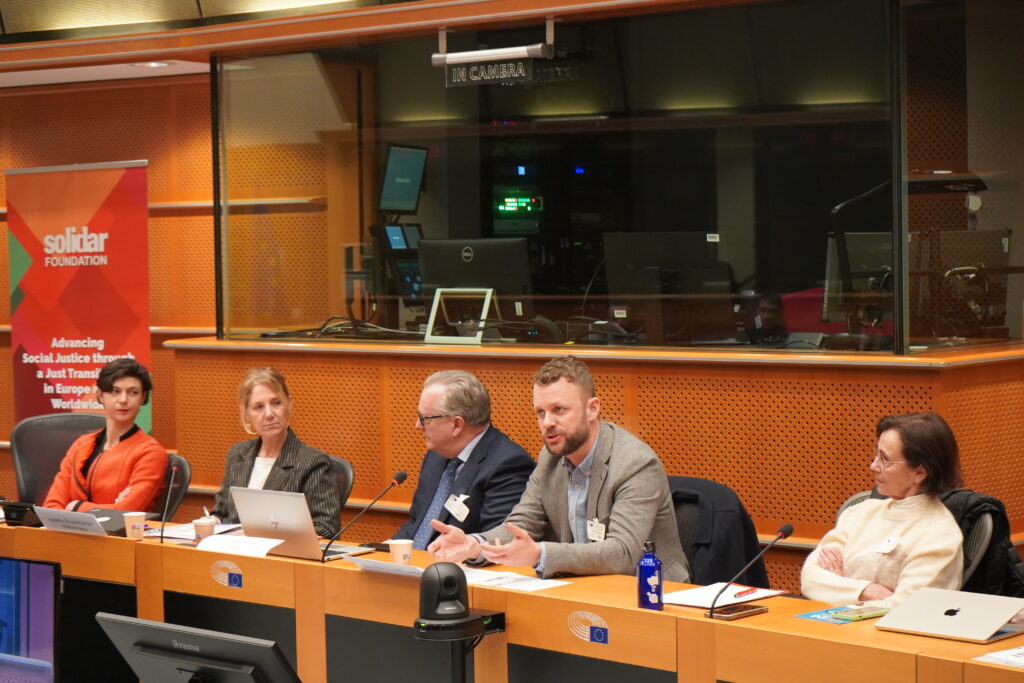
Mikael Leyi, General Secretary SOLIDAR & SOLIDAR Foundation, agreed with the ideal scenario where Global Citizenship Education (GCE) policies are harmonious and well-established though he posed the question on how this can be achieved. We find ourselves in a situation where human rights and international organizations have become politicized, which poses challenges and impacts both marginalized groups and civil society as a whole. When governments come to power, one of their first targets is often popular education movements. This calls for the need to reconfigure this narrative, making human rights a non-political issue – something that should be universally accepted.
He also pointed out that we are facing budget cuts and a shrinking space for civil society. While we all hope for increased funding, there is a genuine concern that the current trends may lead to further reductions. This creates a complex environment where we must continue advocating for GCE, and gives us more reasons to intensify our efforts. One of the reasons SOLIDAR Foundation initiated an Informal Alliance on GCE is to support like-minded organizations in promoting GCE.


